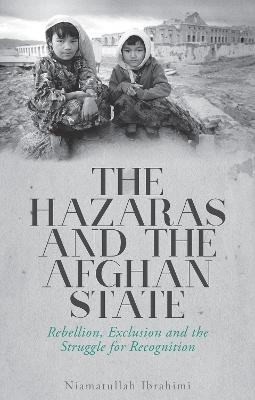
The Hazaras and the Afghan State
Rebellion, Exclusion and the Struggle for Recognition
Seiten
2022
C Hurst & Co Publishers Ltd (Verlag)
978-1-78738-774-4 (ISBN)
C Hurst & Co Publishers Ltd (Verlag)
978-1-78738-774-4 (ISBN)
The Hazaras, numbering some 2.5 million, have for centuries faced persecution from Afghanistan's majority Sunni population -- politically, socially and economically. This book examines how and why.
The Hazaras of Afghanistan have borne the brunt of many of the destructive forces unleashed by the establishment of the Afghan monarchy in 1747. The history of their relationship with the Afghan state has been punctuated by frequent episodes of ethnic cleansing, mass dispossession, forced displacement, enslavement and social and economic exclusion. Mostly Shia in a country dominated by Sunni Muslims, and identifiable because of their Asian features, the Hazaras became Afghanistan's internal 'Other'. They look different and practise a different school of Islam in a country that is prone to internal conflict and the machinations of external powers. The history of the Hazaras therefore offers a unique perspective into the deep contradictions of Afghanistan as a modern state, and how its ethnic and religious dynamics continue to undermine the post-2001 political process. This volume provides a fresh account of both the strategies and tactics of the Afghan state and how the Hazaras have responded to them, focusing on three key phenomena: Hazara rebellion and resistance to the intrusion of the Afghan state in the nineteenth century; the incorporation of the Hazara homeland into Afghanistan in the 1890s and their subsequent marginalisation and exclusion; and the Hazaras' ethnic mobilisation and struggle for recognition in recent decades.
The Hazaras of Afghanistan have borne the brunt of many of the destructive forces unleashed by the establishment of the Afghan monarchy in 1747. The history of their relationship with the Afghan state has been punctuated by frequent episodes of ethnic cleansing, mass dispossession, forced displacement, enslavement and social and economic exclusion. Mostly Shia in a country dominated by Sunni Muslims, and identifiable because of their Asian features, the Hazaras became Afghanistan's internal 'Other'. They look different and practise a different school of Islam in a country that is prone to internal conflict and the machinations of external powers. The history of the Hazaras therefore offers a unique perspective into the deep contradictions of Afghanistan as a modern state, and how its ethnic and religious dynamics continue to undermine the post-2001 political process. This volume provides a fresh account of both the strategies and tactics of the Afghan state and how the Hazaras have responded to them, focusing on three key phenomena: Hazara rebellion and resistance to the intrusion of the Afghan state in the nineteenth century; the incorporation of the Hazara homeland into Afghanistan in the 1890s and their subsequent marginalisation and exclusion; and the Hazaras' ethnic mobilisation and struggle for recognition in recent decades.
Niamatullah Ibrahimi is a political analyst who researches and writes about current and historical affairs of Afghanistan. He has worked for the Crisis States Research Centre of the London School of Economics and the International Crisis Group. He is currently a PhD candidate at the Australian National University.
| Erscheinungsdatum | 28.01.2022 |
|---|---|
| Verlagsort | London |
| Sprache | englisch |
| Maße | 138 x 216 mm |
| Themenwelt | Geisteswissenschaften ► Geschichte ► Regional- / Ländergeschichte |
| Geisteswissenschaften ► Religion / Theologie ► Islam | |
| Sozialwissenschaften ► Ethnologie | |
| Sozialwissenschaften ► Soziologie | |
| ISBN-10 | 1-78738-774-7 / 1787387747 |
| ISBN-13 | 978-1-78738-774-4 / 9781787387744 |
| Zustand | Neuware |
| Haben Sie eine Frage zum Produkt? |
Mehr entdecken
aus dem Bereich
aus dem Bereich
Universalgelehrter, Polarreisender, Entdecker
Buch | Hardcover (2024)
mareverlag
CHF 39,20


